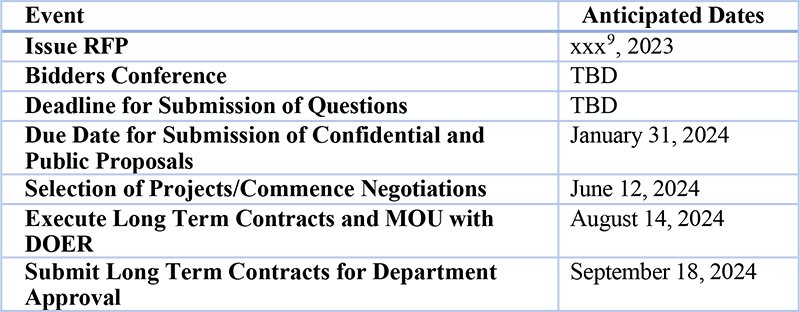The Massachusetts Department of Energy Resources (DOER) on Tuesday issued a draft request for proposals for up to 3,600 MW of offshore wind generation, the state’s largest solicitation yet.
Pending approval from the state’s Department of Public Utilities (DPU), the RFP would be the state’s fourth for offshore wind and a record for New England solicitations.
“This draft RFP is a signal to the rest of the world that Massachusetts is all-in on offshore wind and ready to be the industry’s hub,” Gov. Maura Healey said in a statement. “Our proposal is also a commitment to Massachusetts ratepayers to chase after all clean energy for our homes and businesses.”
The capacity would be enough to meet more than a quarter of the state’s annual electricity demand. Depending on the outcome of the state’s existing offshore wind project contracts, the latest solicitation could allow the state to meet its goal to procure 5,600 MW by 2027.
This comes as Avangrid’s (NYSE:AGR) 1,200-MW contract from the previous round of bidding remains up in the air, with the company trying to exit its power purchase agreements with utilities, citing increased costs from inflation, supply chain issues and rising interest rates.
 The DOER’s proposed timeline | Massachusetts Department of Energy Resources
The DOER’s proposed timeline | Massachusetts Department of Energy Resources
As the state hopes to avoid similar issues in this round of bidding, the RFP would allow bidders to submit an alternative indexed pricing proposal. This would tie the bid price to a set of economic indices, allowing the price to increase or decrease by up to 15%.
The main consideration for selecting the winning bids in the new round of proposals will be a quantitative assessment of the economic and environmental costs and benefits to ratepayers, which will account for 70 points of the 100-point scoring system. The state will also consider a set of qualitative economic development and project experience factors, which will make up the remaining 30 points.
The experience criteria would include each bidder’s track record in successfully developing similar projects — potentially putting Avangrid at a disadvantage — while the economic development criteria would favor proposals that include community benefit agreements; workforce agreements with labor unions; training programs with local organizations; and employment opportunities for women, workers of color and residents of affected environmental justice communities.
“This RFP is crafted to capture the greatest benefit for Massachusetts’ ratepayers, communities and businesses and to grow our blue energy economy,” DOER Commissioner Elizabeth Mahony said. “With this draft RFP, we are requiring projects include support for environmental justice populations and low-income ratepayers in the commonwealth, and opportunities for diversity, equity and inclusion.”
The draft RFP will likely go to a public comment period with the DPU. If ultimately approved, the DOER has proposed a Jan. 31, 2024, due date for proposal submissions, with projects selected in June 2024.




